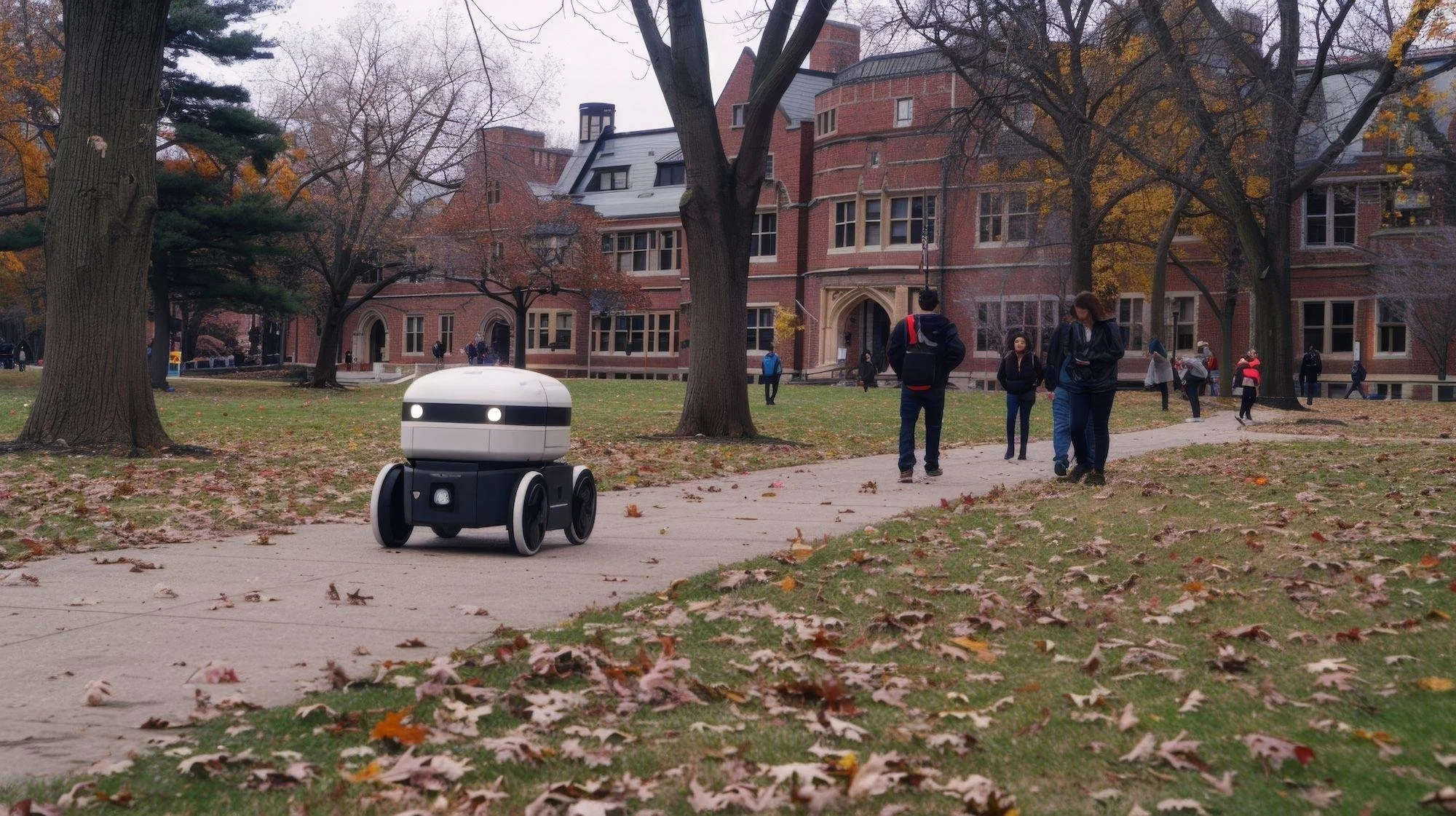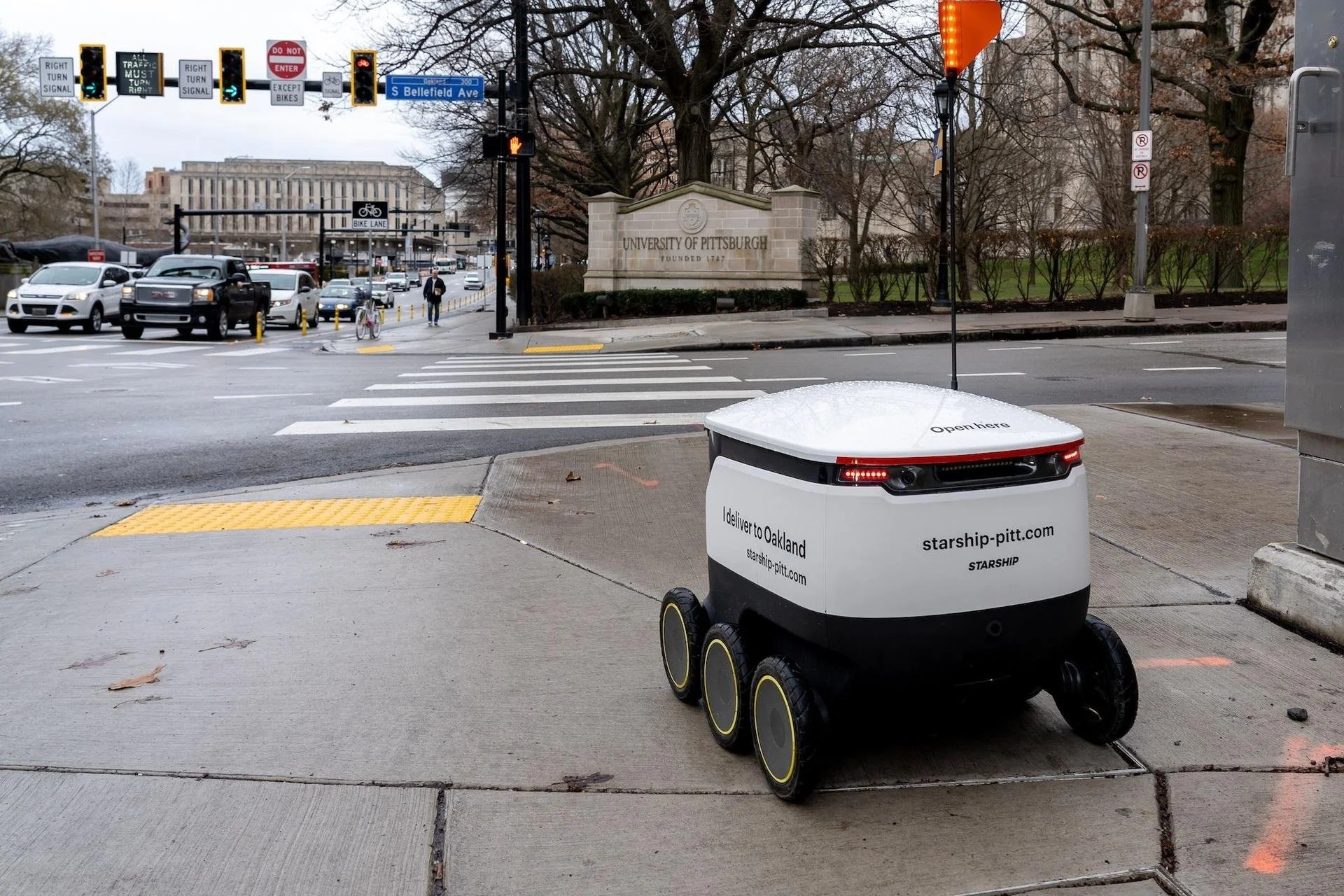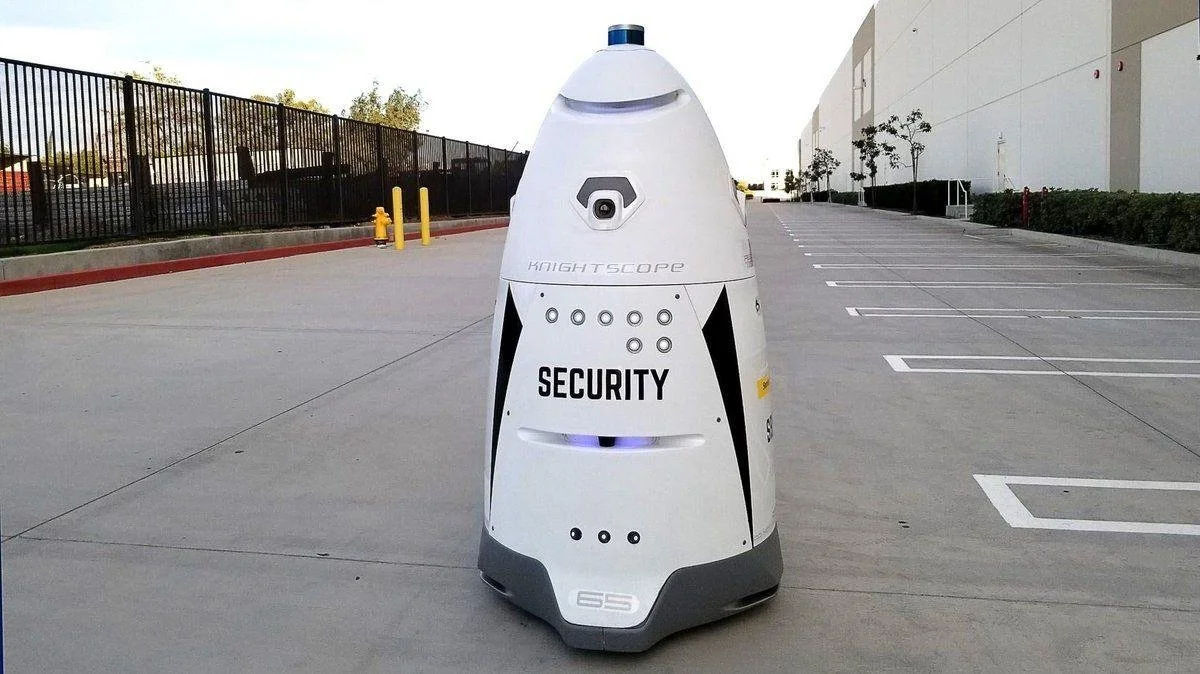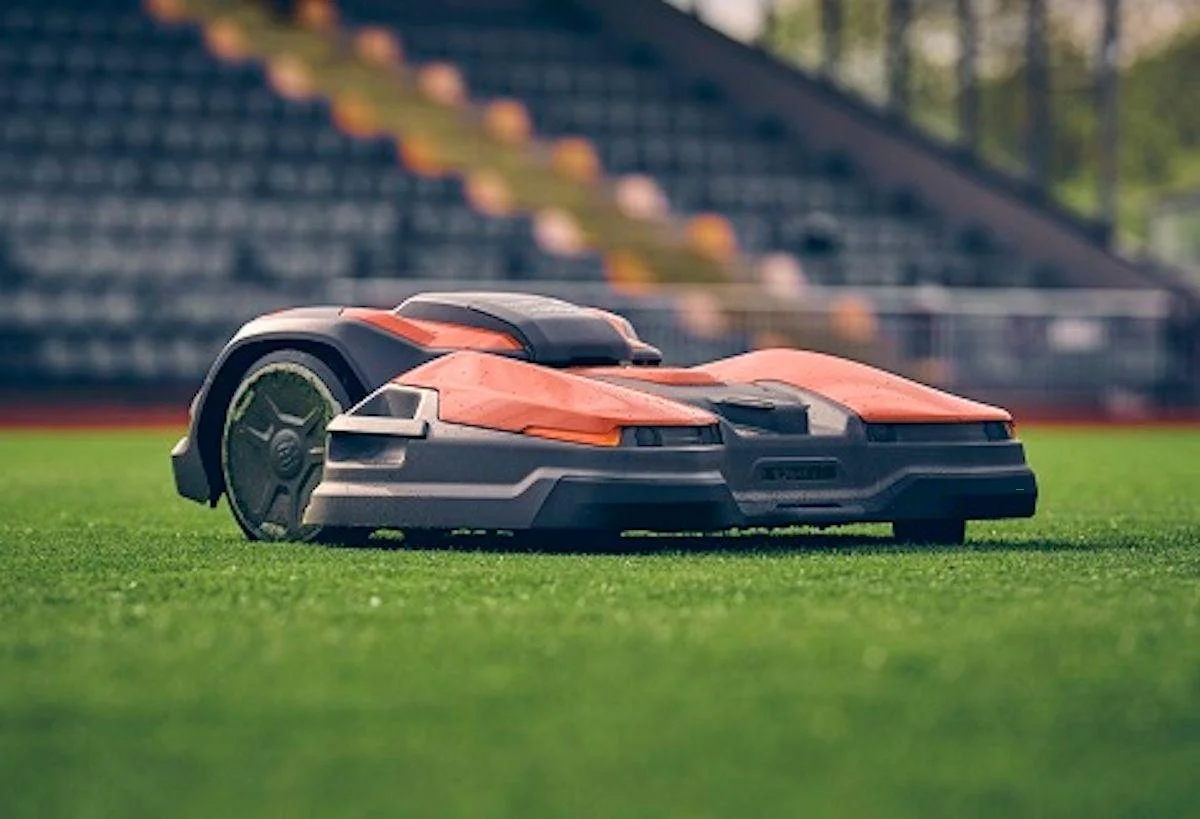The Top Commercial Robots for Higher Education Facilities
Colleges and universities pride themselves on conducting leading research, implementing innovative solutions, and the use of highly sophisticated technology. These qualities are what attract new and returning students and often help higher education institutions develop themselves as leaders in research and scholarliness across industries.
So, it’s no surprise that colleges and universities are implementing commercial robots across campus to improve the on-campus experience and revolutionize campus operations management.
What are commercial robots? Commercial robots are devices that are designed to assist with or take on tasks that are time-consuming, repetitive in nature, or even dangerous for humans.
Sometimes called Cobots (collaborative robots), they are often used to work alongside human workers to improve efficiency and increase productivity.
So, what are the most common commercial robots being adopted across college campuses to improve operational efficiency and productivity? We’ve compiled a list.
The following are the top five commercial robots that are significantly enhancing the efficiency, safety, and overall experience within higher education facilities.
Food Delivery Robots
Why They Matter
Food delivery robots have taken college campuses by storm. Often implemented to improve food delivery costs and times, these autonomous service robots help maintain smooth campus operations.
Food delivery robots are designed to autonomously transport items from food delivery providers to resident halls on campus. The commercial robots are insulated and keep hot and frozen items temperature-controlled until delivered.
They also offer a contactless delivery solution, which is particularly beneficial in maintaining hygiene standards.
According to The Food Institute, “The various capabilities and programmability of this technology allow college campuses and businesses to explore robotic options to combat labor shortages, costs, and other restraints.”
Key Features
· Autonomous Navigation: Use GPS tracking, advanced lidar sensors, and motion cameras to navigate complex campus layouts safely.
· Secure Compartments: Ensure that deliveries remain safe and untouched until they reach the intended recipient.
· App Integration: This allows users to track their deliveries in real-time and receive notifications upon arrival. Integrate with already established apps like Grubhub.
Impact on Campus Operations
These robots alleviate the logistical challenges of delivering items across expansive campuses, reduce delivery times, and free up human resources for other tasks.
Ohio State University was one of the first colleges to implement food delivery robots. According to Zia Ahmed, the Senior Director of Dining Services at Ohio State University, the college is looking to beat national averages for food delivery costs and times by implementing food delivery robots.
According to Ahmed, the national average for food delivery is one hour and the average cost is $5-6 dollars per delivery. By implementing delivery robots on campus, Ahmed’s goal is to get delivery timing down to less than 30 minutes and the cost down to $2.50 per delivery.
By improving delivery time and costs, campus dining service programs can reduce expenses and keep food service affordable for college students.
Cleaning Robots
Why They Matter
Maintaining a clean and healthy campus is imperative to hygiene, aesthetics, and even student learning. According to a study done in collaboration with Bingham Young University, APPA, and ISSA, the lack of cleanliness on campus is a distraction to a majority of students.
The study notes:
“Of the nearly 1,500 students polled, 88 percent reported that the lack of cleanliness becomes a distraction at APPA’s Level 3 (casual inattention) and Level 4 (moderate dinginess). Eighty-four percent reported that they desire APPA Level 1 (orderly spotlessness) or Level 2 (ordinary tidiness) standard of cleanliness to create a good learning environment.”
Autonomous cleaning robots, like Cobi 18 by ICE Cobotics, help increase cleaning operations efficiency and productivity by taking on the repetitive task of floor cleaning. This frees campus custodial and maintenance teams to complete other high-level tasks that result in cleaner and tidier campuses.
Key Features
· Adaptable Cleaning Routes: Use AI to optimize cleaning paths based on real-time data and changing conditions.
· Multi-Surface Capability: Equipped to clean various surfaces, from hard floors to carpets.
· Data Collection: Provide reports on cleaning performance and usage patterns, helping facilities managers optimize operations.
Impact on Campus Operations
By implementing commercial cleaning robots, colleges can ensure that cleaning is done systematically and thoroughly, improving the overall cleanliness of campus facilities and improving the student experience.
Plus, by automating routine cleaning tasks, human custodial staff can focus on more detailed or specialized cleaning needs, thereby enhancing overall productivity.
Security Robots
Why They Matter
Campus security is a critical component of maintaining a safe and welcoming environment for students, staff, and visitors. Autonomous security robots, such as those developed by Knightscope, provide round-the-clock surveillance and can cover large areas without fatigue or human error.
The University of Nevada, Reno, signed to use Knightscope’s K5 Autonomous Security Robot (ASR) in 2023. The university is implementing commercial security robots on campus to provide a safer campus for students, staff, and visitors.
According to a news article “ASR will patrol the parking garage located near the Student Center, helping students stay safe during class time, around games and other events, and throughout each night.”
Key Features
· Real-Time Surveillance: Equipped with high-definition cameras, thermal imaging, and sensors to detect unusual activities.
· Patrol Scheduling: Can be programmed to patrol specific areas at designated times, ensuring continuous monitoring.
· Emergency Response: Capable of alerting human security personnel to potential threats and providing real-time footage.
Impact on Campus Operations
Commercial security robots enhance security presence, reduce the burden on law enforcement, and provide a visible deterrent to potential wrongdoers. Their ability to continuously patrol and monitor large areas ensures a safer campus environment.
Groundskeeping Robots
Why They Matter
The upkeep of campus grounds is essential for creating a welcoming and aesthetically pleasing environment. Groundskeeping robots are starting to gain in popularity for tasks like lawn mowing.
Meredith College, located in Raleigh North Carolina, added lawncare robots to its team at the end of 2023. The robotic mowers are made by Husqvarna and are being implemented as a way to support campus facilities staff.
The college notes, “A primary benefit of the new equipment is that it allows Meredith’s grounds staff more time to do other projects. The new mowers will increase the efficiency and consistency of lawn care.”
Key Features
· Precision Mowing: Autonomous lawn mowers that can operate on set schedules, navigate around obstacles, and handle slopes, some up to 45%.
· Weather Resilient: Can mow the lawn even when raining and timers can be adjusted based on the growth rate for more frequent mowing during high growth periods.
· Safety and Collision Sensors: Blades instantly stop or retract inward if the mower is lifted or detects an object.
Impact on Campus Operations
These robots maintain campus grounds efficiently and consistently, ensuring that outdoor areas remain clean and accessible. By automating these labor-intensive tasks, campuses can achieve higher standards of ground maintenance with reduced labor costs and improved sustainability.
According to the Meredith College press release,
“With more frequent mowing there is less irrigation needed, less disturbance to natural habitats, and better turf health and appearance. The robotic mowers have no carbon emissions and are also quiet when in use.”
Conclusion
The integration of commercial robots into higher education facilities offers a myriad of benefits, from enhanced security and efficient deliveries to spotless environments and well-maintained grounds.
As technology continues to advance, commercial robots will only become more sophisticated and integral to campus operations. By investing in these innovative solutions, facilities directors and campus leaders can ensure that their institutions remain at the forefront of operational efficiency and provide the best possible environment for their students, staff, and visitors.
Embracing these technological advancements not only addresses current operational challenges but also positions higher education institutions as leaders in innovation and sustainability.
As campuses continue to evolve, the role of commercial robots will undoubtedly become even more critical in shaping the future of higher education facilities management.
ICE Cobotics is a leading floor cleaning technology and equipment company specializing in autonomous solutions available through an all-inclusive subscription. If you’re in the market for robotic floor scrubbers, we can help. Reach out to our automation specialists to answer your questions.




